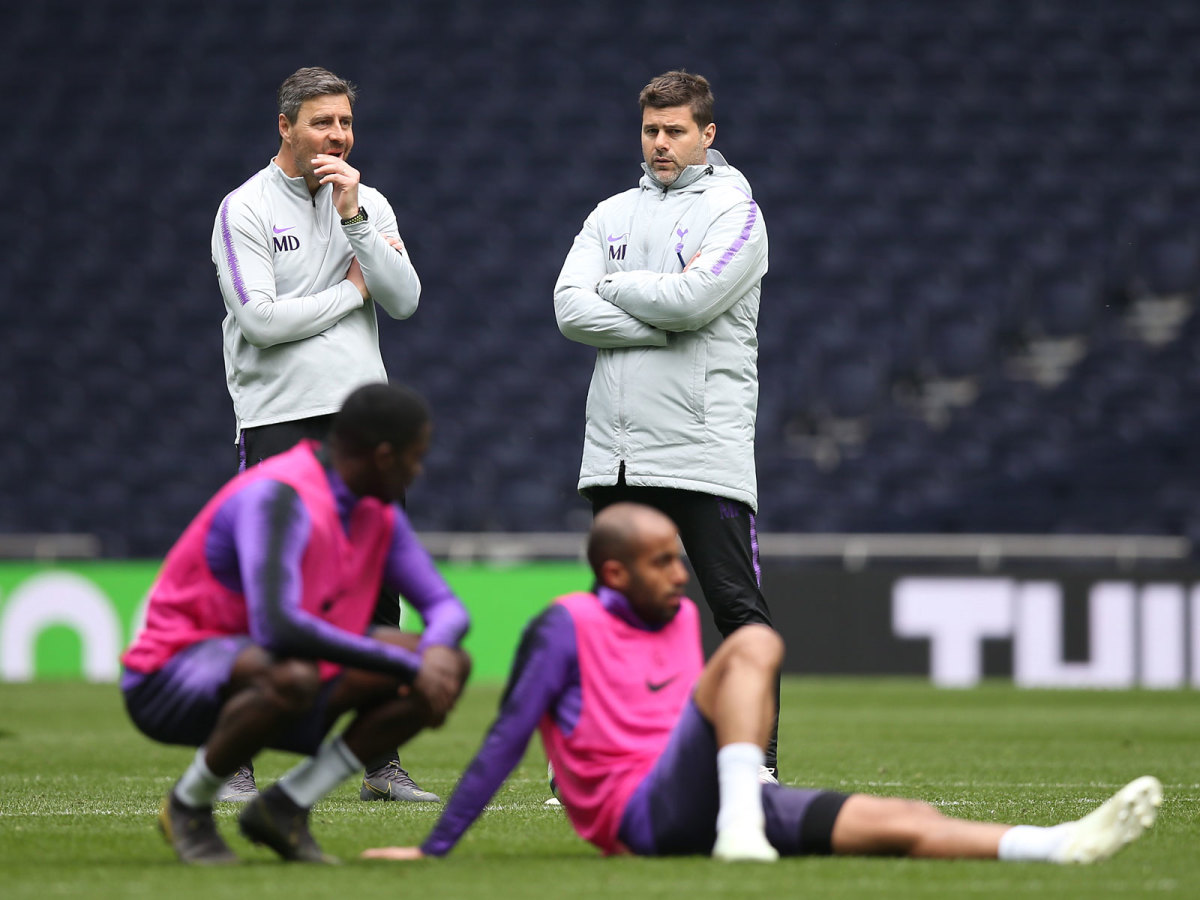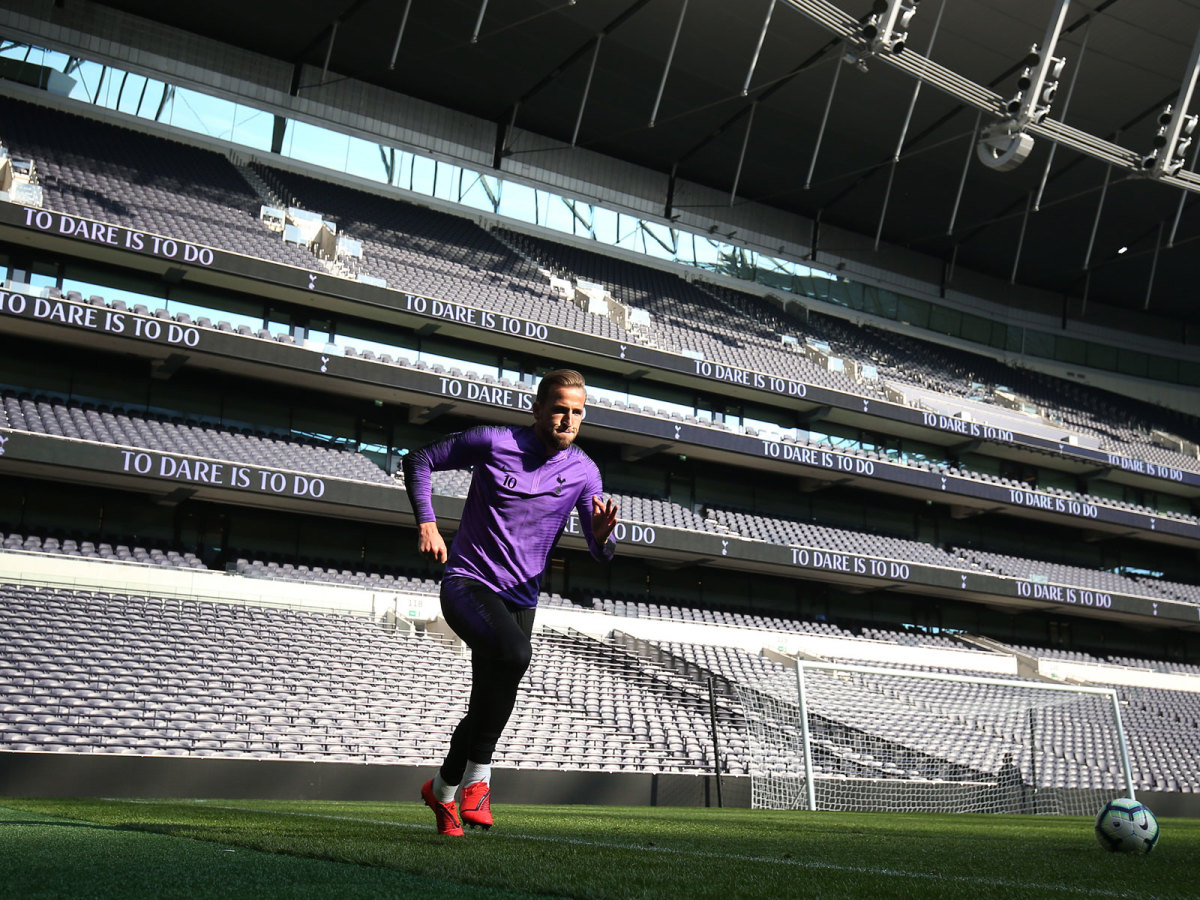Will Tottenham's New Stadium Be the Game-Changer the Club Desires?

Sometimes international breaks can come at just the right time. Two weeks ago, Tottenham had slid into something of a slump. It had won one of its previous five games. Its unlikely title challenge was over and there was a distinct sense of slide. Arsenal had closed to within a point. There’s risk that Spurs will not qualify for next season's Champions League. The squad was creaking, exposing the risk of becoming the first club in Premier League history to go a full season without signing anybody. And for what? Was a new stadium really worth it?
Last week, Tottenham’s new stadium hosted its first game, an Under-18 fixture against Southampton. Reaction was universally, overwhelmingly positive. It looks good, it sounds good. All it needs now is a team appropriate to the setting.
That’s the worry. The Emirates prompted much the same reaction when it opened in 2006, but the bright new future envisaged for Arsenal never developed. The financial drain of building the stadium, it turned out, was too great. Arsenal hasn’t been able to compete at the very highest level of the transfer market since.
That Tottenham is where it is given the comparative lack of investment is remarkable, a testament to the ability of manager Mauricio Pochettino and the effectiveness of both its recruitment and youth development. But then again, Arsenal was generally believed to be good at those things back in 2006, too. Football history is replete with lessons that trying to achieve success on a budget is possible only for so long.
That’s the point of the stadium. It has been built, and built on such a grand scale, to try to boost Tottenham to the next level. It’s not just that capacity is over 40% greater than the old White Hart Lane, it’s the potential to generate income from corporate hospitality and other commercial ventures.
Again, those were arguments heard when the Emirates opened and the factors that meant the new stadium wasn’t as big of a game-changer as Arsenal had hoped it would be are just as relevant now. Arsenal had placed a huge amount of faith in its new ground but was undone by two unanticipated financial developments: the arrival in the English game of billionaire oligarchs and petro-states and the sudden boom on television broadcast rights. A big, profitable stadium helped, but it was nothing like the expected advantage when plans were initially drawn up.

The biggest difference between Arsenal and Tottenham at the point of their move, though, is perhaps in the managers. Arsene Wenger was 57 and, although it wasn’t recognized at the time, had perhaps already passed his peak. Pochettino is 47 and is seemingly still approaching his. Whether he would have left for either Real Madrid or Manchester United in the summer is unclear–he was clearly excited by the prospect and frustrated by the lack of signings–but events have worked in Spurs’ favor and with the two clubs that had seemed possible destinations appointing new managers, he is clearly staying at Tottenham at least in the short-medium term.
It shouldn’t be forgotten, though, that after the final game of last season, Pochettino effectively issued an ultimatum to his chairman Daniel Levy. Intense talks followed, and the result was new deals for both himself and Harry Kane, which broke the previously tight wage structure at the club. There will almost certainly be further talks at the end of this season, both about transfer budgets and about improving the contracts of a number of Tottenham’s young stars. That said, Pochettino has clearly lost some leverage.

And much, of course, depends on whether Tottenham qualifies for the Champions League this season. Without Champions League revenue, budgets will be cut even further. What had for a long time seemed almost a given is now in doubt. Spurs remain third, but Arsenal is just a point behind, United two further back and Chelsea a point behind that. By the time the weekend fixture are over, with Tottenham away at Liverpool, that picture could look even worse.
But at least now Tottenham has a new stadium to move into and its next game after the weekend trip to Anfield will be there against Crystal Palace on Wednesday. The end is in sight and, for now at least, the purpose of all the financial retrenchment looks like having been worth it.
